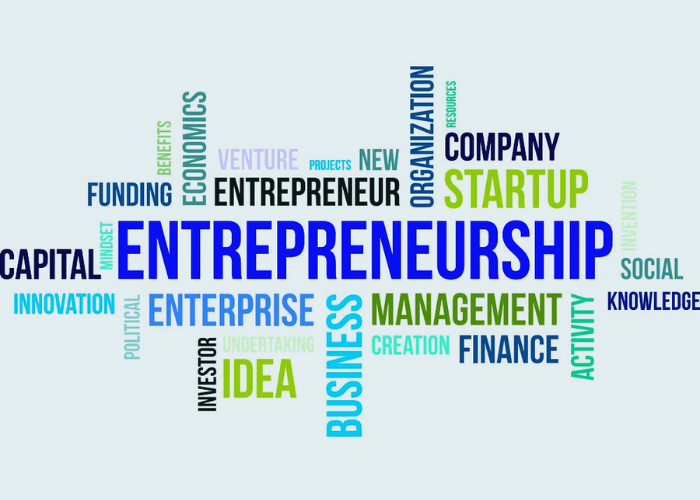Entrepreneurship: Yesterday, Today, TomorrowBY SIMON SAREVSKI
- 11 May 2023
- Posted by: Competere
- Categories: highlights, News

Imagine purchasing an old house, unaware that it is infested with rats. Determined to solve this problem, you head to a local store specializing in mouse traps and promptly acquire some. After a week of trapping several rodents, you realize that your current traps are insufficient. Returning to the store, the seller presents you with two options: 1) larger, superior, and more efficient traps, or 2) a chemical extermination alternative.
Choosing the best solution depends on each unique situation, emphasizing the importance of tailoring approaches. In the aforementioned scenario, entrepreneurial endeavors manifest in two ways: firstly, by refining and improving existing solutions like the mouse traps, and secondly, by identifying novel approaches to the problem, such as chemical extermination. However, there exists another facet of entrepreneurship that involves envisioning products or services that consumers don’t yet realize they need, with the smartphone serving as a prime example. In simple terms, the entrepreneur tries to solve people’s problems and satisfy their needs, and in the process better the life of the consumer, whether they know it or not.
But before delving into the entrepreneurship of the past, it is worth noting that while modern-day individuals may possess greater knowledge compared to our ancestors, it doesn’t necessarily imply superior intelligence. In other words, if we were to transport a newborn from ancient Rome to the present, by the time they reached school age, their knowledge would surpass that of a 50-year-old Roman without access to time travel. With that said, the inherent potential for entrepreneurship has remained relatively constant throughout history, with the only distinction lying whether individuals have been granted the opportunity to exercise their entrepreneurial spirit. The only caveat here – data shows that the richer and more advanced societies become, the need for entrepreneurship over stable high paying jobs is lowered.
THE LEGEND OF THE UNBREAKABLE GLASS
Legend has it that during the Roman Empire, an inventor created unbreakable glass. Filled with elation, he was invited to present his invention to the emperor, only to be met with a fatal inquiry: who else was privy to this knowledge? Upon confirming that only those present in the room were aware, his life was abruptly ended. Similar to the contemporary fears surrounding AI and the sentiments of the Luddites, the emperor believed that once unbreakable glass was introduced, all glassmakers would lose their livelihoods, leading to social unrest.
This encapsulates the history of entrepreneurship until the industrial revolution. Entrepreneurship is done only if approved by the right people in power. However, as property rights gained recognition, everything changed. People gradually began innovating and amassing wealth by improving the lives of others. This “today” has persisted for a little over two centuries. When pondering its essence, we realize that not much has fundamentally changed during this time. We have developed superior mouse traps, embraced chemical solutions, and conceived smartphones and other gadgets we never imagined we needed, but “not much has changed.”
The second, equally important component when it comes to entrepreneurship, besides the innovating part, is the bringing-to-market. It serves no purpose if you create the unbreakable glass or the smartphone that no one can get his hands on. Uber and Airbnb didn’t invent taxis or hotels. They didn’t even make them “any better.” What they managed to do was connect those potentially willing to offer the services to those already willing to pay for them. And as always, the entrepreneurial process lowered the price luring more people to rent/drive and more people traveling and paying for those services. But, what about the future?
THE FUTURE
Considering the “today” we currently inhabit—specifically within the context of Western developed nations — technology brings “problems” along its way. For example, newborns and very young children have interacted more with AI and software than with people during the COVID lockdown. Unbeknownst to them, Alexa has become their closest confidant. Admittedly, this notion sounds peculiar, and I share your apprehension. People spend more time interacting on their phones rather than in person – and we call ourselves “the social animal.” What about the potential sound excess in the cities or the collision in the air because of the delivery drones that are very close to leaving the sci-fi world?
However, my point lies elsewhere. We are the generation – the “connected” generation of the internet, smartphones, and social media – positioned amidst the transitional phase between “today” and “tomorrow,” at least in terms of technology and overall progress. At this juncture, we can only attempt to predict the potential that tomorrow holds. But as always, we don’t know it. And although we have reached this point only because we have found solutions so far, it doesn’t necessarily have to be the case again.
CONCLUSION
The underlying purpose of the text was not for you to read a history lecture or to elucidate entrepreneurship solely from my perspective. Even less so, to hear a prediction on the future of entrepreneurship and what to invest in. The tale of the glassmaker versus the entrepreneurs of the industrial revolution and “today” serves as representative extremes, highlighting the choices we face as we forge our path into the future.
Indeed, the future is scary. Similar to the fears harbored by the Luddites, concerns over AI rendering jobs obsolete loom large. Consequently, the concept of universal basic income gains traction, though I shall refrain from advocating either for or against it in this discourse. This leaves us with a critical decision: do we try, with open minds, like before to solve our problems or do we put only roadblocks ahead of us built on nothing but fear and “compassion.” Whatever we choose, we have to remember, if we don’t try, we can never progress past this point.
* Simon Sarevski is editor and researcher at the Austrian Economics Center.
